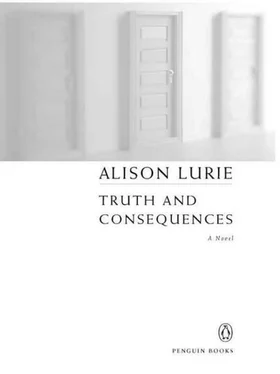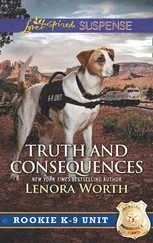Jim Weisman and Katie Fenn, the friends with whom Alan was staying near Columbia, were among his oldest and closest. They had been on sabbatical all last academic year, and had not seen him since his back trouble. They were clearly disconcerted to find him walking with a cane, and even more when he asked almost at once if he could put his icepacks in their freezer and lie on their sofa, with a tapestry pillow under his head and another between his knees. As he explained his condition, they listened with concern and dismay. They turned with relief to their own immediate history, describing with enthusiasm a Fulbright year in Southeast Asia, where Alan would now probably never go, and New York theater and opera productions that he would never see.
After half an hour his exhaustion and pain were so great that he had to retreat to his friends’ spare room. For over an hour he lay there, unable to sleep, listening to their murmured voices. He could not distinguish the words, but it was clear from the tone that Jim and Katie were distressed. He realized that he should somehow have prepared them for the change in his condition and appearance, which for people back in Corinth had come more gradually.
By the time Alan emerged from the spare room, there had been a seismic shift in his friends’ attitude. They were now warm and solicitous, offering vodka and wine and bourbon, and then chicken curry and fruit sherbet; but for the rest of the evening they spoke mostly of the past, recalling their mutual adventures in college and graduate school and several European countries. Though he joined in, laughing and reminiscing, he became more and more aware that invisibly his friends had taken a step or two away from him. He had become a beloved character from their past rather than their present or future.
Alan and Jim were almost exact contemporaries, but he had always been just a little ahead: published sooner, promoted to tenure sooner, married more successfully (Katie was Jim’s second wife). Now it was clear that he had lost this edge. He was no longer ahead of his friends or even parallel with them, but a member of another, inferior species: an invalid. His project for a book on religious architecture was old news, and he could see that they were surprised that it was not yet completed.
Out of superstitious motives, he did not say that he might soon be having a show of his watercolor paintings. Delia had been enthusiastic and optimistic, but she was not part of the New York art world. It was quite possible that she had exaggerated her friend’s interest in Alan’s work, or that his gallery was only a shabby small-time operation. That at least was what Jane suspected. She had been doubtful about the whole project. (“If that dealer really wants your pictures, why doesn’t he come here to see you? He knows you’re ill, doesn’t he?”) Of course, Jane had also been prejudiced against Delia from the beginning, for some reason, and suspicious of her motives. (“She’s always flattering people and wanting them to think she has a lot of power and influence.”)
Last night Alan had slept badly, in spite or perhaps because of all the wine and bourbon he had drunk and the various pills he had taken. At four a.m. he staggered into the guest bathroom in a state of dizzy, blurred pain and despair. Unlike the bathroom at home, Jim and Katie’s was brilliantly lit, and in the mirror he could see himself with hideous clarity as they must have seen him: a sick, worn, overweight, prematurely aging man with a scruffy haircut. That wasn’t his fault: for almost a year and a half he had been unable to sit in a barber’s chair, and at monthly intervals Jane had climbed on a stool to cut his hair. She had done the best she could; but by New York standards her best was not very good.
As he stood before the mirror a great wash of despair and self-disgust came over Alan. Why am I kidding myself? he thought. My back is not getting better. I am not teaching or working on my book, only wasting time making drawings of imaginary ruins. I am the ruin of a professor, the ruin of a scholar, the ruin of a man. It would be better if I were dead. In a drugged blur of self-hatred he turned to the bathroom window and tried to lift the sash. But the building was old, and the window had warped shut; he could only raise it a couple of inches before he had to give up and lie down on the guest room bed again, giddy and gasping with the effort, wracked and wrecked with pain.
It’s a good thing I couldn’t get that window open last night, Alan thought now as he stood looking over the field of flowers that was Central Park. I must have been a little crazed from all those drugs. For one thing, Jim and Katie’s apartment was on the second floor, and probably he would only have injured himself further, not to mention causing them lifelong remorse. (“What could we have said to make him do that?”)
After breakfast Alan had taken a painful taxi ride to the rather grand building on Central Park West where Delia was staying, and waited in the lobby for fifteen increasingly painful minutes. Finally she appeared, strangely transformed. Her mass of hair had been compressed into a chignon from which only a few gold-red tendrils escaped; she was elaborately made up and dressed in fashionable New York black: a long-skirted suit, a black silk blouse, a trailing black lace scarf, and dangerous-looking pointed black high-heeled sandals. She did not apologize for making Alan wait, only gave him a New York air kiss near one cheek.
“I hardly recognized you in that getup,” he said as they started across town in another horrible jolting taxi.
“It’s protective coloration. I’m having lunch with a new editor; I want to scare him a little.”
“I was hoping to have lunch with you myself,” Alan said, attempting without total success to keep disappointment and jealousy out of his voice.
“Sorry. Business before pleasure.” Even Delia’s voice seemed different. Then she turned toward him and gave her familiar low, warm laugh. “You have to dress to distress in this city. And by the way, you should get rid of that tie before Jacky sees it. Artists don’t wear ties here, only businessmen.”
“You really think—?”
“Absolutely. Anyhow it looks too academic. Jacky doesn’t want to meet a professor, he wants to meet a genius. You should really have on jeans and a black sweater.”
“Well, all right.” Alan laughed. After all, what had he to lose? He pulled off his striped tie, rolled it up, and put it in his pocket.
“Oh, and when you’re at the gallery, you should be the strong silent type. Don’t talk much. And don’t sign anything.”
“You’re suggesting that Mr. Herbert is a crook,” Alan said.
“No, no. Jacky’s a very charming, kind man. I adore him.”
“Really,” Alan said, this time managing to keep the irrational rush of jealousy out of his voice.
“But of course he’s also an art dealer. So if he gives you a contract, just say you’d like to show it to your lawyer first.”
“In other words, let him know I don’t trust him.” Alan winced as the taxi jolted over a pothole.
“No, not at all. He’ll respect you for it.”
Contrary to Jane’s suspicions, the gallery, in a Madison Avenue office building, seemed prosperous, and the work on the walls was interesting. And Jacky Herbert was an unlikely object of jealousy, being a heavy, elderly gay man with a shiny pink bald head surrounded by pale gray curls. He was impeccably dressed in a pale gray suit and shiny pink silk tie, and his handshake was fleshy but firm.
After an exchange of compliments and news about mutual friends that Alan could not follow, Jacky expressed his admiration for Alan’s art. He would like, he declared, to put four or five of the big drawings into his December group show. Indeed, he had already shared some of the slides with one or two privileged patrons (“I don’t like the term ‘customers’ ”) and might make a sale even sooner.
Читать дальше







![Кэмерон Доки - Правда и ее последствия[Truth and Consequences]](/books/79610/kemeron-doki-pravda-i-ee-posledstviya-truth-and-con-thumb.webp)




